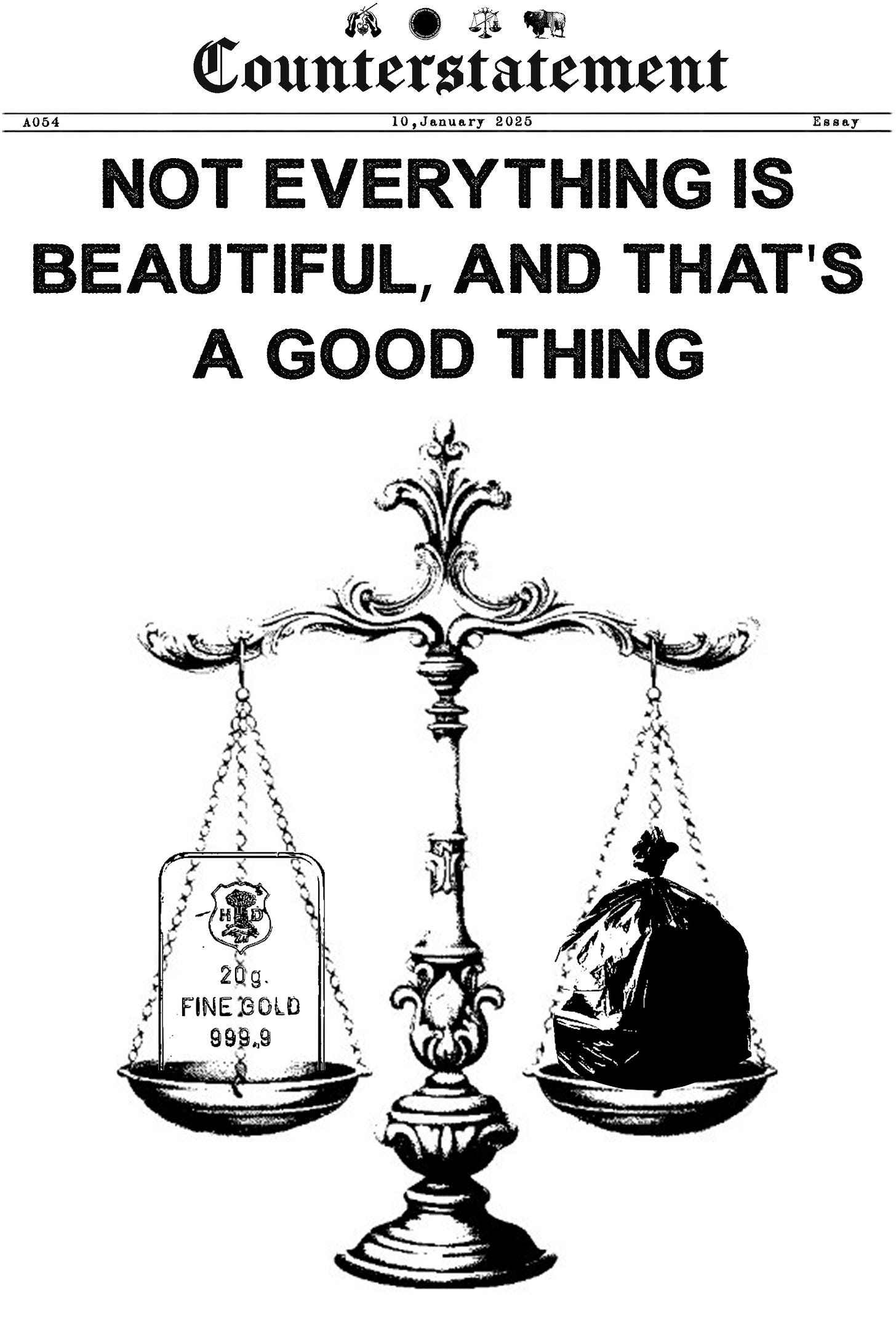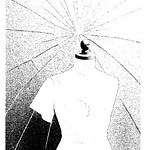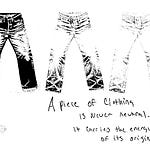Aesthetic Relativism and the Death of Standards
Let’s not mince words: aesthetic relativism is the watered-down cocktail of postmodernism—a weak drink for a weak soul. It thrives in this brave new world where universal standards have been discarded like last season’s runway rejects. Now, everyone declares that “beauty is subjective” with the same smugness they reserve for Instagram captions about self-love. Everything is supposedly beautiful in its own way, they say. How convenient, then, that no one has to risk offending anyone or, worse, standing for something.
But don’t be fooled by this parade of faux humility. The mantra of “everything is beautiful” is not born from a genuine appreciation for diversity, but from an unwillingness to confront the uncomfortable truth: not everything deserves admiration. There was a time when beauty demanded rigor, when to call something beautiful was a declaration of its rare and transformative power. Beauty once commanded respect, even reverence. It was earned, not assumed. To call something beautiful was a high honor, not the participation trophy handed out to every passing trend.
Now, however, the currency of judgment has been devalued, and we are left with a cultural economy of mediocrity.Beauty has become a democracy, but not the noble kind—it’s mob rule, where discernment is overthrown in favor of appeasement. To point out that something is ugly or lacks merit is not only taboo but practically treasonous. The mere suggestion that some things might not measure up is met with gasps of horror, as though the act of judgment itself were a crime against humanity.
This newfound “inclusivity” isn’t as noble as it sounds. The inability to call something ugly, or worse, bad, does not stem from kindness or an enlightened understanding of diversity—it stems from cowardice. We have traded discernment for docility, mistaking politeness for progress. Taste has been democratized—yes—but in a way that neutralizes judgment entirely. Where once beauty was debated, fought over, and even worshipped, now we smile blankly and nod, as though mediocrity deserves the same applause as genius.
The collapse of standards has created a dangerous equivalence. A masterpiece and a knockoff are placed on equal footing, not because they are equal, but because no one dares to say otherwise. Mediocrity hides behind the banner of inclusivity, while true excellence stands awkwardly at the edges, too polite to remind us of its existence. We have confused acceptance with indifference, and in doing so, we have cheapened the very concept of beauty.
It’s not a celebration of subjectivity—it’s the denial of discernment. We are drowning in a sea of bland politeness, where “ugly” is too harsh a word and “bad” too bold an opinion. But this refusal to judge is no virtue; it is a death knell for beauty itself. Because without standards, beauty loses its meaning. Without the boldness to say, "This is exceptional," and "This is not," we lose the joy of being challenged, moved, or awed by something truly extraordinary.
The Cost of Losing Standards
Let us not underestimate what is at stake here. Beauty is not just an aesthetic preference—it is a cultural compass. It tells us what we value, what we aspire to, and what we believe is worth preserving. To abandon standards is not merely to abandon taste; it is to abandon the very pursuit of excellence.
Without discernment, we lose the language to talk about what moves us. We lose the ability to recognize the transcendent, the sublime, the awe-inspiring. Instead, we are left with a grey, featureless horizon of “good enough,” where nothing stands out and nothing truly matters.
Beauty demands courage—the courage to see, to judge, and to say what is true, even when it is unpopular. The courage to offend, if necessary, in the service of something greater. Without that courage, we are left with the tyranny of niceness, where mediocrity rules and the extraordinary goes unnoticed.
The Call to Discernment
The solution is not a return to rigid, exclusionary standards that ignore diversity or cultural context, but rather a return to the willingness to judge—to recognize that not all things are equal, and that this inequality is where beauty thrives.Beauty is, and always has been, a dialogue. It requires contrast, disagreement, and even discomfort. It demands that we wrestle with it, question it, and defend it.
To call something beautiful should mean something again. It should be a bold declaration, not an empty gesture. And yes, to call something ugly should also mean something—it should be a challenge, an invitation to do better, to strive higher. This is not cruelty; it is honesty. And honesty, as uncomfortable as it may be, is the foundation of beauty.
Without this willingness to discern, we resign ourselves to the tyranny of mediocrity. But with it, we reclaim the joy of beauty in its fullest sense: as something rare, transformative, and worthy of our highest aspirations. Let us be brave enough to judge, and in doing so, let us rediscover the true power of beauty.













